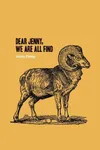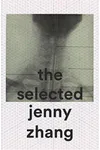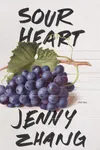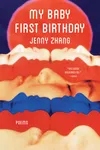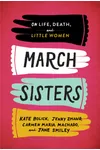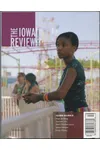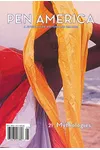Picture a Shanghai-born storyteller who spins raw, fearless tales of Chinese American life—meet Jenny Zhang! Born in 1983, this Brooklyn-based writer, poet, and essayist has carved a unique space in contemporary literature with her bold exploration of immigrant identity, family ties, and the messy beauty of growing up. Her provocative works, like the poetry collection Dear Jenny, We Are All Find and the short story collection Sour Heart, have captivated readers with their unflinching honesty and vibrant voice.
Zhang’s stories aren’t just words on a page—they’re a window into the heart of the Chinese American experience, blending humor, heartache, and a touch of rebellion. Ready to dive into her world? Let’s explore the life and works of this literary trailblazer.
The Making of Jenny Zhang
Born in Shanghai, Jenny Zhang immigrated to New York City at age five to join her parents, who had come to the U.S. after the Chinese Cultural Revolution. Her father studied linguistics at NYU, and her mother carried the weight of a complex past. Growing up in a Chinese American enclave, Zhang’s early life was shaped by her family’s stories of survival and adaptation. After studying at Stanford and the Iowa Writers’ Workshop, she honed her craft while working diverse gigs—union organizer, teacher in Hungary, and creative writing instructor in the Bronx. These experiences fueled her sharp, empathetic voice.
Zhang’s writing career kicked off with essays for Rookie, a teen magazine where her candid nonfiction resonated with young readers. Her ability to weave personal and cultural narratives laid the foundation for her later works, which would challenge literary norms and amplify marginalized voices.
Jenny Zhang’s Unforgettable Stories
Zhang’s debut poetry collection, Dear Jenny, We Are All Find (2012), is a raw, lyrical exploration of identity and displacement. Written partly in secret during her time at Iowa, these poems pulse with humor and vulnerability, earning comparisons to a “21st-century Whitman.” Her 2014 chapbook, Hags, a nonfiction essay inspired by a Texas filibuster, showcases her knack for blending political insight with personal reflection.
In 2017, Zhang made waves with Sour Heart, a short story collection published by Lena Dunham’s Lenny imprint. This feminist bildungsroman follows Chinese American girls navigating 1990s New York, tackling poverty, racism, and familial love with unflinching candor. Critics, including The New Yorker, praised its “ingenious artistry” and emotional depth. The collection won the PEN/Robert W. Bingham Prize and the Los Angeles Times Book Prize. Her 2020 poetry collection, My Baby First Birthday, further cements her as a poet who stretches the lyric form, exploring womanhood and heritage with vivid, oozy emotion.
Zhang’s style is fearless—scatological, tender, and defiantly anti-assimilationist. She rejects the “good immigrant” narrative, instead crafting stories of families who love fiercely, even when it hurts. Her work challenges readers to embrace the messy, human side of the immigrant experience.
Why Jenny Zhang Matters
Jenny Zhang’s impact lies in her refusal to conform. By centering Chinese American girls in narratives that are neither glamorous nor stereotypical, she redefines what immigrant stories can be. Her work resonates with readers who see their own struggles in her characters’ raw honesty. Zhang’s influence extends beyond literature—she’s a cultural voice, writing for The New York Times, Poetry, and BuzzFeed, and co-writing a film adaptation of Sour Heart for A24.
Her subversive take on race, femininity, and love has made her a beacon for young writers, particularly those from marginalized communities. Zhang’s legacy is one of courage, proving that stories from the margins can reshape the literary canon.
- Born: 1983, Shanghai, China
- Key Works: Dear Jenny, We Are All Find, Hags, Sour Heart, My Baby First Birthday
- Awards: PEN/Robert W. Bingham Prize, Los Angeles Times Book Prize
Snag Sour Heart or My Baby First Birthday and dive into Jenny Zhang’s fearless world of poetry and prose! Her stories will make you laugh, cry, and rethink what it means to belong.
